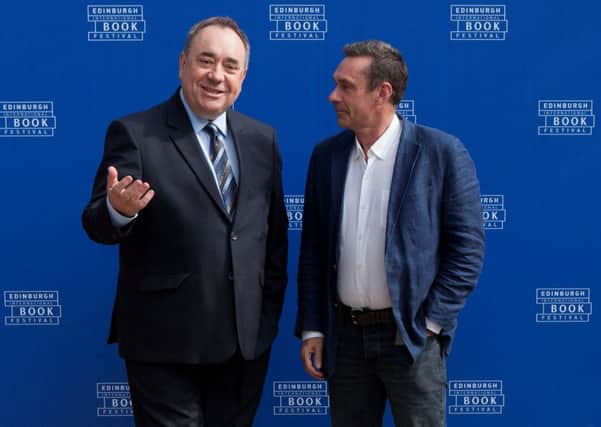Alex Salmond: BBC indyref coverage a ‘blind spot’


Nationalists have claimed that the corporation’s reporting of the referendum favoured the pro-union campaign, although this was rejected by BBC chiefs.
The ex-SNP leader chaired a discussion with journalist Paul Mason at the Edinburgh International Book Festival yesterday.
Advertisement
Hide AdAdvertisement
Hide AdMr Salmond said: “The Treasury didn’t surprise me. The chief executives of a number of companies didn’t surprise me in the slightest. But the BBC did surprise me, and that’s because my experience of elections, and again in the elections held this year, is that while politicians complained about this and that, by and large, on the whole the television coverage in this country is pretty fair and square.
“It wasn’t like that during the referendum, and that I confess did surprise me and that was a blind spot which perhaps I should have seen but didn’t see.
“I thought the coverage of the referendum would be like the coverage of an election.”
Outgoing BBC political editor Nick Robinson used his own platform at the Book Festival to accuse the pro-independence protests outside the BBC’s Glasgow base as being like something from “Putin’s Russia”.
Mr Salmond also compared Permanent Secretary to the Treasury Sir Nicholas Macpherson to a Bond villain, repeating his allegation that Sir Nicholas abandoned his commitment to civil service impartiality by actively working against independence.
Mr Mason, a former BBC journalist, said: “I have this theory about the BBC, that what most people don’t like about it is to do with the social group from which its managers and senior people are recruited.
“I’m not even talking about politics, I think it’s an outlook on life.”
He said they will “nearly always be unionist, nearly always be of a neoliberal point of view”.
“I’m absolutely sure that the BBC believes it is a unionist institution,” said the journalist who now works for Channel 4.